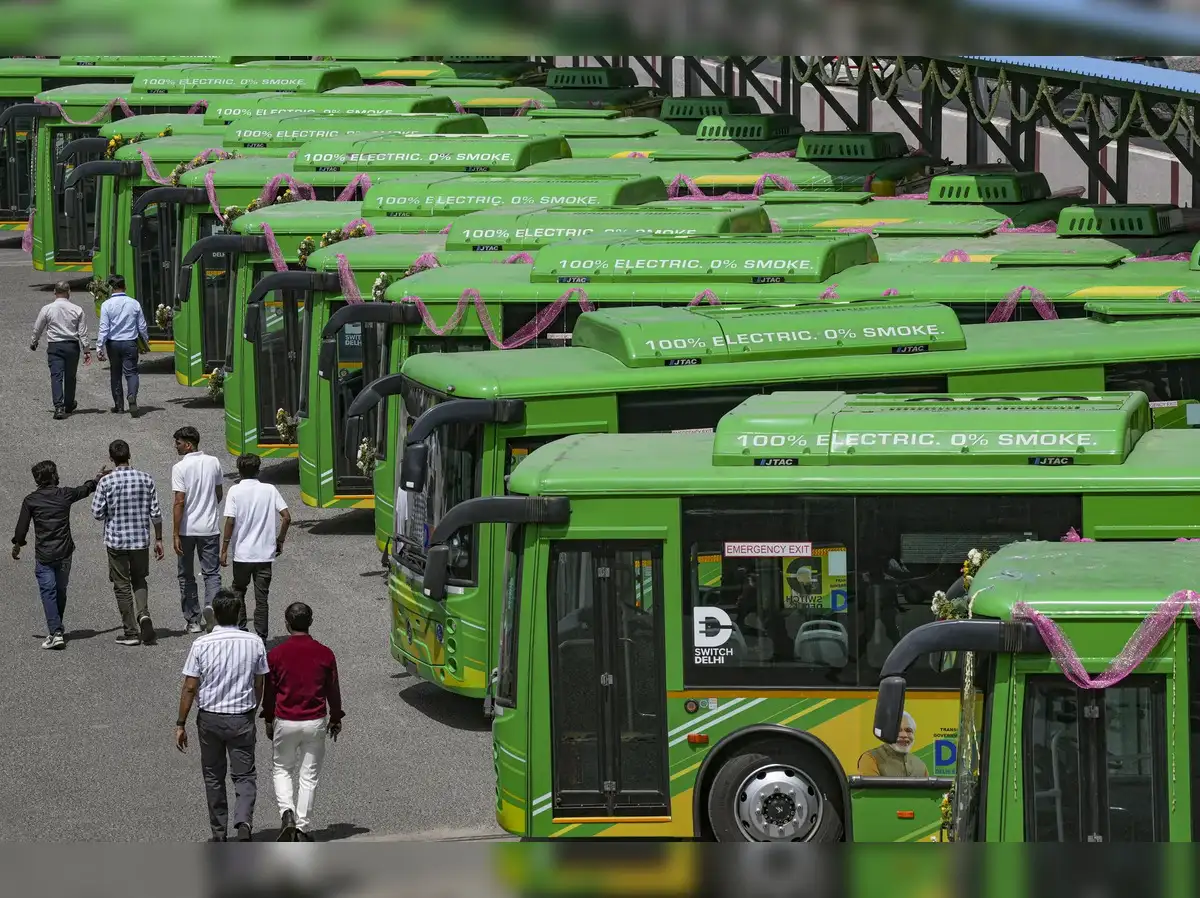Delhi is rolling out an ambitious summer resilience strategy by transforming its ageing fleet of buses into food kiosks across major transport nodes.
The repurposing of defunct Delhi Transport Corporation (DTC) buses into functional stalls at high-footfall interchanges like Anand Vihar, Sarai Kale Khan, and Kashmere Gate is a key initiative under the Delhi Heat Action Plan 2025, which aims to reduce the distress caused by rising heat levels, particularly for daily commuters.This initiative, reviewed this week by the state’s transport leadership, is not only a climate-adaptive urban intervention but also a socio-economic innovation. By converting buses that once ferried lakhs of passengers into micro-enterprises, the government seeks to provide affordable refreshments to passengers while opening new avenues for local employment. These stationary kiosks are expected to become a common sight at city transport hubs, offering shade, sustenance, and a moment of comfort for heat-stricken commuters.
Alongside these food kiosks, the city is deploying ‘Jal Doots’—trained personnel tasked with distributing purified drinking water at bus queue shelters. These workers will serve as frontline agents in preventing heat-related ailments during peak summer months. Complementing this human network, the DTC has announced the installation of RO digital water dispensers at key depots, starting with ten units across strategic locations in the city. These water stations are designed to cater to both the travelling public and transport staff, ensuring hydration access throughout the day.Posters and pamphlets on heat-related illness prevention are also being disseminated at bus stops as part of a broader public awareness effort.
also read : https://urbanacres.in/new-delhi-katra-train-offers-safe-passage/
Simultaneously, health response teams are being positioned across all Delhi government hospitals and health centres to provide immediate medical attention to vulnerable citizens. This integrated approach combines infrastructure, manpower, and health literacy to deliver targeted relief against what is fast becoming an annual urban crisis.Delhi’s inter-state bus terminals (ISBTs) are also slated for upgrades under the same framework. Both Sarai Kale Khan and Anand Vihar ISBTs will be developed into multi-modal hubs, enhancing last-mile connectivity across rail, metro, electric vehicles, and bus systems. The vision, officials shared, is to create heat-resilient, commuter-friendly environments that prioritise safety, comfort, and sustainable mobility.
In a city grappling with increasing heatwaves due to climate change, such interventions point to a new mode of thinking—one that reimagines existing infrastructure to serve dual purposes. By integrating health, sustainability, and economic inclusion into public transport planning, Delhi’s summer blueprint holds promise not just for immediate relief but also for shaping equitable and climate-conscious cities of the future.
also read : https://urbanacres.in/dda-allocates-rs-8720-crore-to-transform-delhi-infrastructure/
Delhi turns old buses into food stalls


